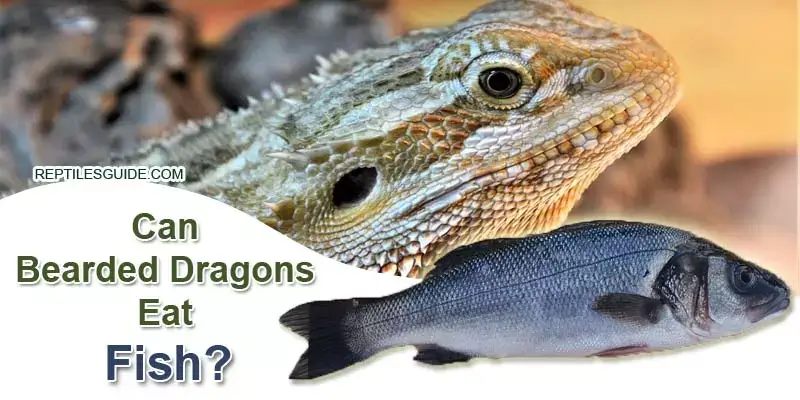There are many species of fish around the world. Fish are nutritious and most people enjoy eating them. As for bearded dragons, you may wonder if you can feed them fish too. So, can bearded dragons eat fish?
Yes, bearded dragons can eat fish. In their natural habitat, they have been known to eat fish when it’s available. In captivity, most people will feed them feeder fish. While the fish is perfectly safe for them to eat, it could be harmful to them since the fish can carry parasites.
Nutrition Of Fish
Most species of fish are nutritious to eat, both for humans and bearded dragons. It’s rich in calcium and a good source of magnesium, iodine, potassium, iron, and zinc. All these nutrients can benefit the health of bearded dragons.
One of the nutrients that fish is popular for is Omega 3 fatty acids. This nutrient can benefit the bearded dragon’s health. The fish oil will greatly improve skin, coat, joints, and heart health.
Another nutrient is calcium. This mineral is important for bearded dragons. They need calcium in their diet regularly for strong bones and to prevent metabolic bone disease (MBD).
Why Bearded Dragons Should Not Eat Fish
The fish themselves are safe for bearded dragons to eat. It is usually the parasites they may carry are the problem. Once your beardie gets parasites into their body, it will cause them a lot of health issues.
Also, some fish contain nutrients that are unsafe for bearded dragons to eat.
For example, rosy red minnows and goldfish, which are both popular feeder fish. These fish contain something called thiaminase, which is an enzyme that is extremely dangerous to bearded dragons.
The enzyme will prevent thiamine from being absorbed by the body and will kill Vitamin B1.
Vitamin B1 is important for reptiles because it provides them with energy. Without this vitamin, your beardie will become ill.
As for thiamine, it’s also important for your bearded dragon. Thiamine helps balance out the nutrition that they eat. Without enough of it, the beardie could have brain damage or even die.
Parasites of Feeder Fish
Feeder fish are usually kept in large groups and they are not handled with care. The reason for this is that feeder fish are raised simply to be sold as feeders for other fish and animals.
Most of the time, the water will not be treated and parasites will likely infest these feeder fish.
Below are some of the parasites commonly found on freshwater aquarium fish.
Eustrongyloids – This is a parasite that’s usually found among fish such as trout, salmon, and redfin. The parasite can harm your bearded dragon.
Leeches– This is a parasite that attaches itself to its host. The leech can attach to the outside or inside of the fish. Once attached, they will suck the blood out of their host.
Tapeworms and Flukes– These parasites live in the digestive tract of the fish. They are mostly found in minnows, but can be found in many other species of fish. Tapeworms and flukes attach themselves to the intestine and feed off the food their host eats. This will deprive the host of the needed nutrition to survive.
How Much Fish Should Bearded Dragon Eat?
It’s best to not feed your bearded dragon any fish due to the risk of contracting parasites.
However, if you want to feed them any, it’s recommended to feed them one small fish every three months.
When it comes to feeder fish, it’s best to avoid them at all costs. The risk of bearded dragons having parasites is high.
Conclusion
Most fish are safe to feed your bearded dragons. However, the only problem is that they tend to have parasites. These parasites are harmful to the bearded dragon and can cause them a lot of health issues. If you do plan on feeding them fish, especially feeder fish, ensure that it’s free of parasites.
Otherwise, it’s best to avoid feeding them any to avoid the possibility of your bearded dragon being infected with parasites.

